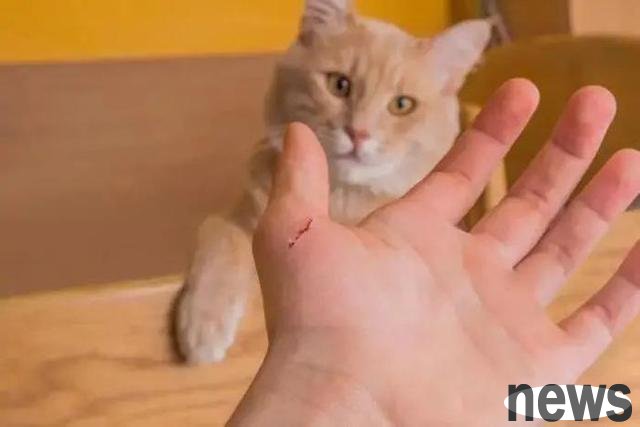The soft body, smooth hair, and soft meow... Many people can't help themselves from "cat-playing", but Uncle Yang in his fifties suffered from a strange disease due to "cat-playing". What bad thoughts can a kitten have? check...
The soft body, smooth hair, and soft meow...
Many people can't help themselves from "cat-playing", but Uncle Yang in his fifties suffered from a strange disease due to "cat-playing". What bad thoughts can a kitten have? check it out!

1 A 50-year-old uncle has been suffering from repeated low-grade fevers
Examination revealed that there are pathogenic bacteria in his heart
In the past four months, 50-year-old Uncle Yang has suffered from a "strange disease" and suffered from recurring low-grade fevers. No matter whether he took medicine by himself or went to a local clinic, he could not get rid of the disease, and his quality of life declined sharply.
Recently, he was found to have an obvious heart murmur when he was treated at Zhujiang Hospital of Southern Medical University. An echocardiogram showed that the mitral valve, aortic valve and tricuspid valve in his heart were all covered with bacteria. The bacteria caused valve insufficiency, resulting in blood flow regurgitation.
This result surprised Uncle Yang.
GIF
Wang Xiaowu, Director of the Cardiac and Vascular Surgery Department of Zhujiang Hospital, introduced that bacterial infection of heart valves is medically known as "infective endocarditis", which refers to inflammation of the heart valve or ventricular wall lining caused by infection by bacteria, fungi and other pathogens. On average, 5 out of every 100,000 people may develop infective endocarditis each year, with this rate varying by region. The risk of death from infective endocarditis is about 25%, and if left untreated, the risk of death is higher.
What is thrilling is that the size of the growth on the mitral valve of Uncle Yang's heart has exceeded 1 cm, which is a high-risk growth that can easily fall off and cause stroke.
"Vegetations are clusters of germs wrapped inside, which are extremely destructive. The valves are the most commonly affected parts, but they can also occur in the chordae tendineae, valve annulus or heart wall intima." Wang Xiaowu said.
For this reason, Director Wang Xiaowu's team performed surgery on the patient on the third day after Uncle Yang was admitted to the hospital. They completely removed the vegetation on the heart, replaced the aortic valve with an artificial valve, and successfully repaired the mitral and tricuspid valves.
After 12 days of careful treatment by medical staff, Uncle Yang has successfully recovered and been discharged from the hospital.
2 The "real culprit" behind the genetic testing and tracking
was caught "cat-licking" and must not be taken lightly
"For patients with infective endocarditis, only by identifying the 'criminal element' of the pathogenic bacteria can we better eradicate the bacteria." Wang Xiaowu said that in order to trace the source, the team used the most advanced detection method "pathogen gene sequencing" to track the pathogenic bacteria.
In the end, the truth came out. The bacteria in Uncle Yang's heart was a rare bacteria called "Bartonella henselae."
Wang Xiaowu introduced that Bartonella henselae is a short, rod-shaped Gram-negative bacterium and a common pathogen that causes cat scratch disease (CSD) in humans. Cats are the main hosts of Bartonella. The pathogen is mainly spread between cats through cat fleas. When humans are scratched or bitten by cats, Bartonella henselae can be transmitted from cats to humans.
According to clinical literature statistics, endocarditis caused by Bartonella accounts for about 3% of all patients with infective endocarditis. Among them, people with low immunity are more likely to develop endocarditis.
Uncle Yang recalled that he adopted a stray kitten half a year ago and was scratched. Wang Xiaowu speculated that this was probably the reason why Uncle Yang was infected with Bartonella henselae.
Wang Xiaowu reminded that with the increasing number of people keeping cats, dogs and other pets, cat-scratch disease is on the rise year by year. People with low immunity should keep pets scientifically and pay attention to preventing Bartonella henselae infection.
He also emphasized that patients with infective endocarditis will have symptoms such as fever, fatigue, persistent low-grade fever, and poor antibiotic treatment effect in the early stage. If there are any abnormalities, they should go to the hospital as soon as possible to determine the best diagnosis and treatment plan.